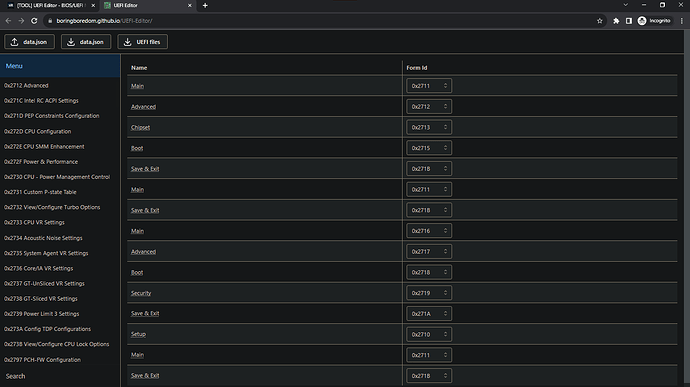UEFI Editor allows changing the target form of top-level references in Menu. I want to make the target of “Ref To” entrys type changable as well. In fact, page id is assigned in any type. In any other non-“Ref To” type it is just “FF FF”.
Is this not feasible?
UEFI Editor is not happy about Dell, Asus, Gigabyte desktop bios. Changes to top-level references do not work as expected.
